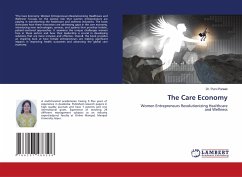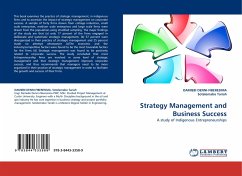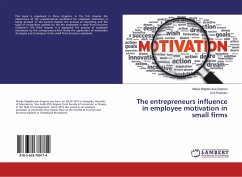
Entrepreneurs and Business Success
The Effect of Fear on Human Performance
Versandkostenfrei!
Versandfertig in 6-10 Tagen
39,99 €
inkl. MwSt.

PAYBACK Punkte
20 °P sammeln!
This book presents a study which explored the types of fears entrepreneurs' experience, the relationship between fear and business success, as well as some interventions that could be useful for increasing fear management capabilities. This mixed methods research surveyed and interviewed small business owners in the Southwestern United States. The results suggest that fear generates costly behavior that negatively affects the entrepreneur's performance, satisfaction, and business success. Additionally, the results showed that "fear of not having enough time" was the most common fear. The inter...
This book presents a study which explored the types of fears entrepreneurs' experience, the relationship between fear and business success, as well as some interventions that could be useful for increasing fear management capabilities. This mixed methods research surveyed and interviewed small business owners in the Southwestern United States. The results suggest that fear generates costly behavior that negatively affects the entrepreneur's performance, satisfaction, and business success. Additionally, the results showed that "fear of not having enough time" was the most common fear. The interviews indicated that consulting, coaching and mentoring were useful human performance interventions for fear management by adding realistic perspective and generating new ideas. Business success was measured in terms of longevity, growth in employees and growth in revenue. Demographic data compares fear to the entrepreneur's gender, experience, and education. The results of this study may have implications for entrepreneurs, consultants, coaches, mentors, human performance practitioners, business educators, and any organization supporting economic development through small business growth.












